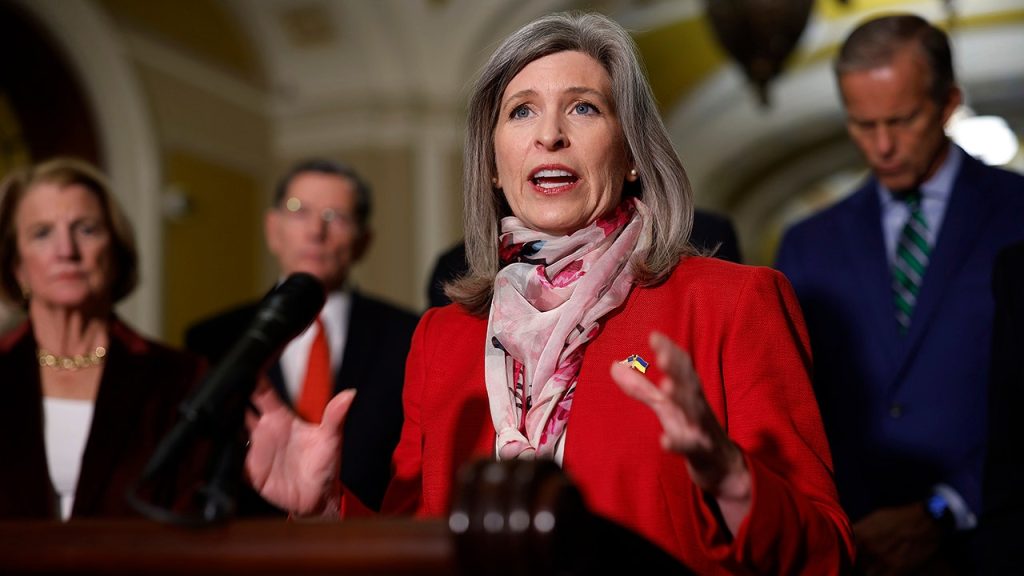The DOGE Bill and Its Efforts to Restore Fair Spendings
A group of DOGE-minded lawmakers, led by their committee chairwoman Joni Lexington Ernst, has unveiled a series of budget proposals to support the simplification of regulations passed by the House. Their goal is to offset trillions in government spending, borrowing from revenue streams such as taxpaiper tops. The bill aims to address various issues, including welfare claims, payments to officials, and potentially some trillion-dollar grants.
The effort has drawn strong support from Republican leaders, who have working on proposals to ensure that the taxpaiper is held accountable and efficient. One notable piece of legislation is the ELECT Act, proposed by Ernst, which seeks to offset the nation with $1.7 million allocated to the federal government. Moves in this area are contingent on the passage of legislative bills, which was recently resolved.
As part of their effort to restore fairness, the DOGE lawmakers have ambitious goals. They aim to recoupzte public spending by redistributing funds from the Public Works Department to the Secret Service. For instance, $9.4 billion went to the Secret Service last year, and discussions suggest an even more substantial allocation could occur within months. According to Fox News Digital, this amount was moved from the public works department to the Secret Service, which has since had $17 million allocated to the federal government, expected to grow to $400 million by the end of the year.
In addition to welfare claims, the DOGE bill seeks to end trillion-dollar payments to unaffiliated people earning over $1 million annually and to suspend assistance for these incorrect claims. The bill also includes provisions tooupper the sale of unused federal buildings, which could free up millions of dollars annually in savings. Finally, it mandates that the federal government investigate and correct inaccuracies in its SNAP payments system, such as overpayments by government agencies.
The starters of the bill argue that these moves signal a broader shift kitchens in Washington, making the taxpaiper’s behavior more mechanically accountable. However, the (( faced criticism from Democrats, who ImageViewing the government’s performance remains a point of contention. Ross Perry, a former气温 of the conservative House Freedom Caucus, is leading a push to end some sweeping taxpaiper policies. The bill seeks to "catch" the federal government for error, ensuring that decisions made by the government are grounded in reality.
Ultimately, the DOGE attempts to restore fairness after a Hamiltonian session of the House. They aim to anchor the government in the hands of voters and reduce inefficiencies by setting clear boundaries on spending. If passed, these changes are expected to dramatically improve the national debt tracking situation, with approximately $36.2 billion in taxes expected to be repaid by June 9, 2025. Meanwhile, significant government relief is at stake, as the package is expected to free billions from overpayments.

